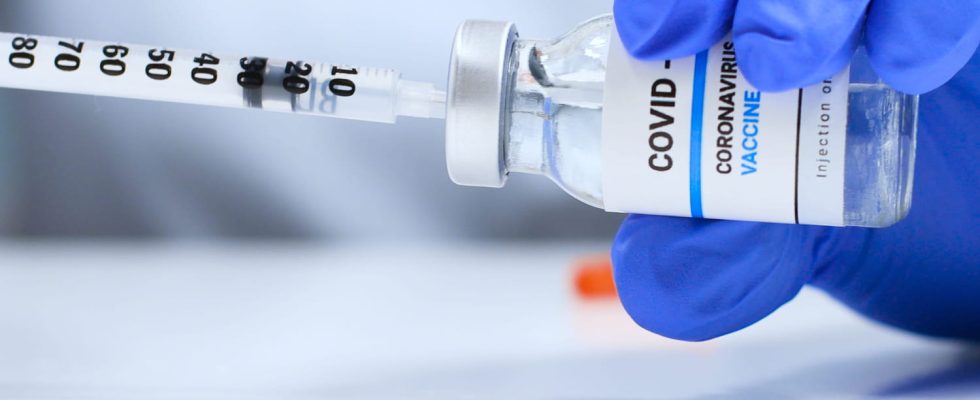The effectiveness of current Covid vaccines declines over time. The OVX033 vaccine candidate offered universal protection against all variants.
L’National Health Security Agency (Anses)* participated pre-clinical trials of a new vaccine which would have the same effectiveness against all variants of Covid-19. This new vaccine, provisionally named “Vaccine OVX033”, is not based on Spike protein unlike the vaccines currently administered to protect against Covid infection in France, but on a target protein common to all Covid variants. Mode of action and availability in France.
How effective against Covid variants?
The protection of a vaccine decreases with the appearance of new variants. For example, the duration of protection against BA4 and BA5 (sublines of the Omicron variant) would be 5.5 months (after the third dose of vaccine) compared to 11.5 months for the initial strain of Covid (Epi-Phare study). But unlike the vaccines currently used against Sars-CoV-2 in France, the OVX033 vaccine seems to be all also effective against the original strain (isolated in March 2020, at the height of the epidemic) that against variants like Delta (detected for the first time in India at the end of 2020) and Omicron (appeared at the end of November 2021 in France and currently the majority variant). To determine its effectiveness, the vaccine was administered to hamsters, which the researchers then compared to unvaccinated hamsters. Their results were published in the journal Frontiers in immunology in June 2023.
► Weight decreased little in hamsters vaccinated and then infected with one of the variants. On the contrary, unvaccinated hamsters have lost 5 to 10% of their mass after being infected with the original strain or one of the variants.
► The lungs of vaccinated hamsters presented significantly fewer lesions than the lungs of unvaccinated hamsters.
► The virus replication rate was lower in vaccinated hamsters.
What is its mode of action?
The versatility of this vaccine is explained by its design : it is capable of targeting the nucleocapsid protein (N) of the virus and not the Spike (S) protein, present on the envelope of the virus. Indeed, the latter, more classically used for quickly develop a vaccine, has a disadvantage: it changes from one variant to another. “The N protein is conserved between Sars-CoV-2 variants and more broadly within sarbecoviruses, the subgenus to which the coronaviruses responsible for severe acute respiratory syndrome such as SARS-CoV-1 and SARS-CoV-2 belong.” explains Elodie Monchâtre-Leroy, director of the Anses Rage and Wildlife laboratory in Nancy. The N protein is present inside the virus and produced in large quantities when it replicates. The cells of the immune system can thus recognize it, which makes it possible toeliminate infected cells and prevent the virus from multiplying.
When will it be available in France?
To receive the green light and be made available to the public in France, a vaccine must be tested in humans in clinical trials in 3 phases. Once the vaccine is deemed effective and safe, health authorities grant its producer a “marketing authorization” (AMM). For the moment, this vaccine is currently undergoing pre-clinical trials and has only been tested on hamsters. A phase 1 human clinical trial is planned for this year 2024as well as preclinical trials on other strains of coronaviruses, notably SARS-CoV-1, responsible for severe acute respiratory syndrome in 2002.
*In collaboration with the United Kingdom Health Safety Agency (UKHSA), the French company Osivax and the Vaccine Formulation Institute, Switzerland.
